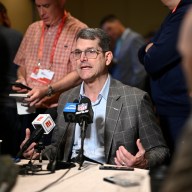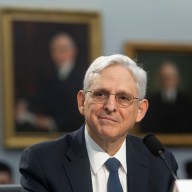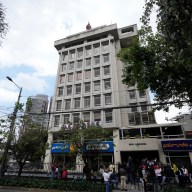By Nathan Layne and Sarah N. Lynch
ALEXANDRIA, Va. (Reuters) – Prosecutors on Thursday aggressively pressed their bank and tax fraud case against Paul Manafort, presenting testimony and documents to try to prove U.S. President Donald Trump’s former campaign chairman deceived his lead bookkeeper and a bank about his finances.
On the trial’s third day, the prosecution pivoted away from describing Manafort’s lavish lifestyle, focusing instead on the nitty-gritty details of actions they believe underpin the charges against him of bank fraud, tax fraud and failing to report foreign bank accounts.
Prosecutors have attempted to portray Manafort as a tax cheat and a liar who hid much of the $60 million he earned from political work for pro-Russian politicians in Ukraine by stashing it in undisclosed overseas accounts.
Manafort, 69, is facing 18 charges in the first trial stemming from Special Counsel Robert Mueller’s investigation of Russia’s role in the 2016 U.S. presidential election. Manafort has pleaded not guilty to all the charges in federal court in Alexandria, Virginia, outside Washington.
Manafort’s lead bookkeeper Heather Washkuhn, who managed the books of his personal and business finances, testified that she thought she had complete knowledge of his financial affairs but that she was unaware of his holdings outside of the United States.
Washkuhn, managing director of the accounting firm Nigro Karlin Segal Feldstein & Bolno, said Manafort was “very detail-oriented” and “approved every penny” the firm paid from his personal account.
Prosecutors presented evidence that Manafort emailed a doctored profit-and-loss statement to a Chicago bank from which he was seeking a loan.
They showed jurors an email from Washkuhn to the bank showing that, through Nov. 20, 2016, his business had a net loss of $1,116,497. They then displayed another email they said Manafort sent to an executive at the bank with a profit-and-loss statement for September 2016 attached.
The document stated that Manafort’s consulting firm had a net income of $3,011,952. Washkuhn said she did not produce that document.
The email from Manafort could potentially undercut his defense strategy. Since the trial started on Tuesday, his lawyers have sought to lay the blame for any financial irregularities on his business partner Rick Gates and went so far as to accuse him of embezzling money from Manafort’s firm.
Defense attorney Thomas Zehnle avoided asking about the questionable document when his turn came to cross-examine Washkuhn.
Taking long pauses to check his notes in between questions, he pressed Washkuhn on whether Gates was the primary go-to guy for Manafort’s financial affairs.
“Mr. Gates would deal with DMP items,” she replied, referring to Manafort’s consulting firm. “But Mr. Manafort was the approval source.”
Washkuhn also testified that she was in the dark about a laundry list of corporate entities that the government says Manafort used when he wired funds to pay expenses.
Vendors who provided goods to the Manafort family testified Wednesday and Thursday that they often received overseas wire transfer payments from companies such as Peranova Holdings Limited, Global Highway Limited and Lucicle Consultants Limited.
Washkuhn said she had no idea any of those entities were owned or controlled by Manafort.
Mueller has pursued a 14-month investigation of Russia’s role in the election and potential coordination between the Trump campaign and Moscow, though none of the charges against Manafort involve that issue.
KEY WITNESS TO TESTIFY
Greg Andres, a member of Mueller’s team, confirmed on Thursday that the prosecution will call Manafort’s former business partner Gates as a witness, a day after prosecutors suggested they might not.
“We have every intention of calling him as a witness,” Andres said.
Gates pleaded guilty to making false statements after being indicted by Mueller, and is cooperating with Mueller’s probe.
As part of his guilty plea, Gates acknowledged routinely dealing with accountants in the preparation of Manafort’s tax returns and misleading them with false information, although he said he did so with Manafort’s knowledge.
Manafort routed millions of dollars to the United States by putting it in real estate, and spending it on expensive suits, cars and home renovations, according to prosecution witnesses. Prosecutors said Manafort evaded taxes through this scheme. Five of the 18 counts he faces relate to filing false tax returns.
On Thursday, the jury heard from Joel Maxwell of a Florida-based company that installs lighting, audio visual equipment and automation systems for homes that did work for Manafort. Maxwell testified that some of the Manafort invoices shown to him from prosecutors appeared to be have been forged.
Michael Regolizio, of a landscaping firm in the Hamptons on New York’s Long Island, also testified that a Manafort invoice was phony, listing an incorrect address and an altered version of his company’s name. Regolizio said he was paid about $450,000 between 2010 and 2014 for work for Manafort, and that the money was paid via a money transfer from Cyprus.
It was unclear who created the invoices or how they were used.
Mueller has indicted or secured guilty pleas from 32 people and three companies. Trump has called Mueller’s investigation a witch hunt and on Tuesday called on Attorney General Jeff Sessions to end it.
(Reporting by Nathan Layne and Sarah N. Lynch in Alexandria, Virginia; Additional reporting by Susan Heavey and Karen Freifeld; Writing by Warren Strobel; Editing by Will Dunham and Grant McCool)















